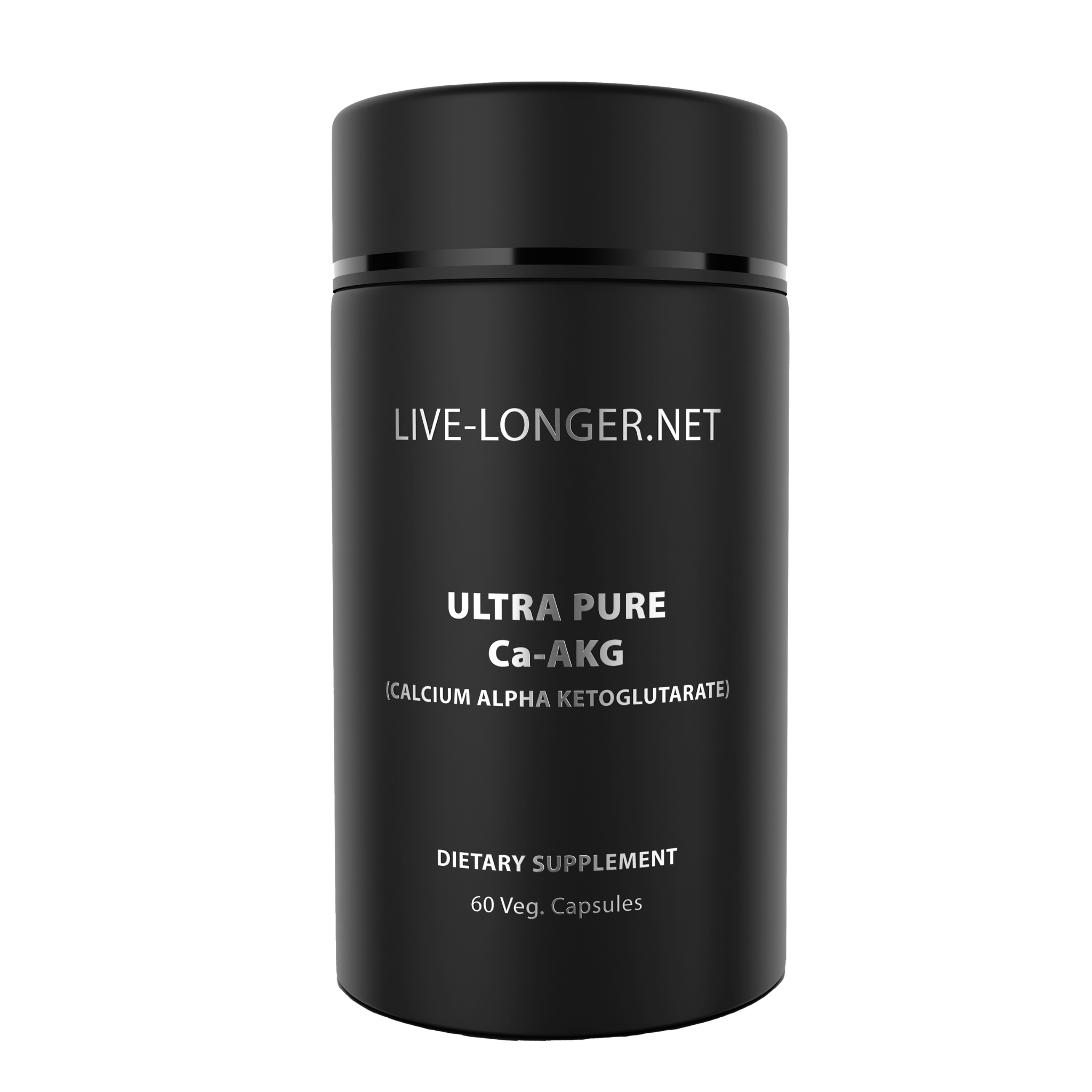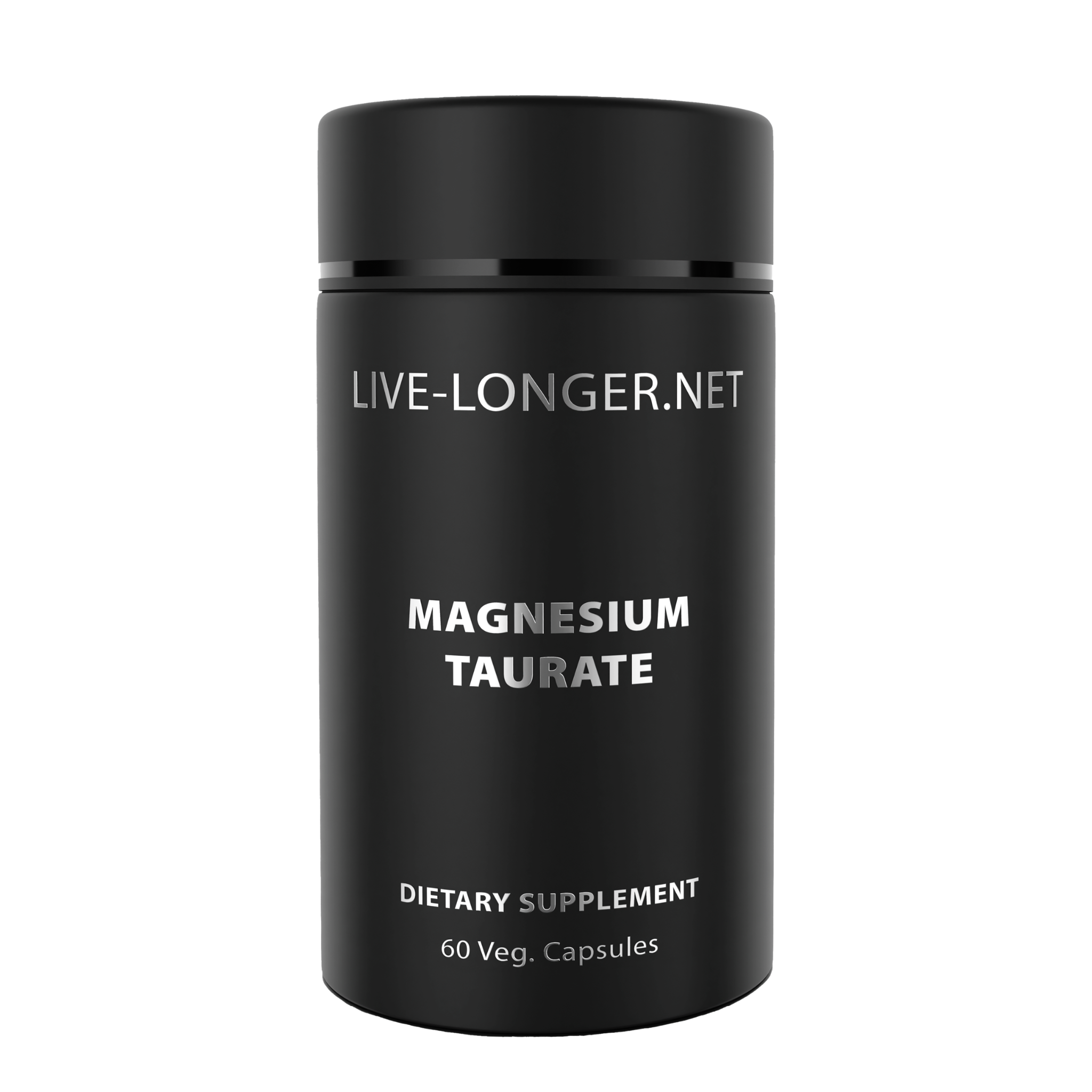Have you ever wished you could find the secret to slowing down aging or boosting your health without sacrificing all the joys of life? Well, you're in luck because the science of sirtuin activators might just have what you're looking for! These fascinating compounds offer potential benefits for everything from slowing down aging to improving metabolism.
So, what exactly are sirtuin activators? In simple terms, they are compounds that stimulate a group of proteins called sirtuins, which help regulate important body functions, including how we age, how well we metabolize food, and how we handle stress.
Research suggests that sirtuin activators could be the key to unlocking better health and possibly even extending lifespan (1). In this article, we'll discuss sirtuin activators, covering everything from how they work to how you can benefit from them.
What are Sirtuins?
Sirtuins are a group of proteins found in all living organisms that play a crucial role in regulating cellular processes, particularly those related to aging, stress response, and metabolism.
There are seven known types of sirtuins (named SIRT1 to SIRT7), and while they all have their own specific functions, the most famous is SIRT1. SIRT1 is known for its role in DNA repair, reducing inflammation, and helping to manage oxidative stress (2).
One of the most interesting aspects of sirtuins is their connection to longevity. Studies on animals, particularly mice, have shown that activating sirtuins can extend lifespan.
For instance, research published in Nature Reviews Cancer demonstrated that mice with higher SIRT1 activity lived longer and were healthier compared to those with lower activity (3). While we're still waiting for human studies, the potential is undeniably exciting.
And here's where sirtuin activators come in. These compounds can help stimulate sirtuin activity, enhancing their ability to protect and repair cells.
How Do Sirtuin Activators Work?
Sirtuin activators help switch on these proteins, pushing them to get to work on the various jobs they're responsible for in the body. But how do they do this? Let's break it down.
Sirtuins are like an engine that needs fuel to run, and that fuel comes in the form of something called NAD+ (nicotinamide adenine dinucleotide) (4). As we age, our levels of NAD+ naturally decrease, which means our sirtuins get a little sluggish. This is where sirtuin activators come into play. They help boost the availability of NAD+.
Sirtuin activators not only increase NAD+ levels but also directly stimulate sirtuin proteins to enhance their effects. A study in Cell Metabolism found that sirtuin activators like resveratrol can improve mitochondrial function and protect against metabolic decline in aging mice (5).
Sirtuin activators can mimic the effects of caloric restriction, a known trigger for sirtuin activity. So, in theory, you could get some of the benefits of a super-restrictive diet without actually having to give up your favorite foods.
The Health Benefits of Sirtuin Activators
Now that we understand how sirtuin activators work let's talk about the real reason you're here—their health benefits. From anti-aging wonders to boosting brain power, these little activators are packing a powerful punch.
Anti-Aging Benefits
One of the most exciting potential benefits of sirtuin activators is their role in slowing down the aging process. Studies suggest that sirtuins help repair DNA, reduce oxidative stress, and manage inflammation—all of which contribute to keeping your cells youthful and functioning better for longer (6).
Metabolic Regulation
If you've ever wished for an easier way to manage your weight and keep your metabolism humming, sirtuin activators might offer some help. Sirtuins play a key role in how your body processes energy and stores fat. Research has shown that sirtuin activators, such as resveratrol and other natural compounds, help improve insulin sensitivity and boost fat metabolism (7). In simpler terms, they can make your body more efficient at using energy, which can aid in weight management and reduce the risk of metabolic diseases like type 2 diabetes.
Heart Health
Your heart is another big beneficiary of sirtuin activation. Sirtuins have been shown to reduce inflammation in blood vessels and improve endothelial function, which is essential for maintaining healthy circulation.
A study in the Journal of Cardiovascular Pharmacology found that sirtuin activators improved heart function in animal models by reducing oxidative damage to heart cells (8). With less inflammation and better circulation, your heart is less likely to develop problems like hypertension or cardiovascular disease.
Neuroprotection
Research suggests that sirtuin activators can help protect neurons from degeneration, potentially offering protection against diseases like Alzheimer's and Parkinson's (9). By promoting cellular repair and reducing oxidative stress in brain cells, sirtuins may help preserve cognitive function as we age. This could mean a sharper mind and a reduced risk of neurodegenerative diseases.
Immune System Support
Sirtuin activators may offer a boost to your immune system. As we discussed before, sirtuins are known to regulate inflammation, which plays a key role in how the immune system responds to threats. By keeping inflammation in check, sirtuins can help the immune system function more efficiently, potentially making your body more resilient to illness.
The Best Natural Sirtuin Activators
If you're already excited about sirtuin activators, you'll be thrilled to know that some of the best ones come from natural sources you can easily add to your diet. Let's look at some of the top contenders.
Resveratrol
Resveratrol is a compound found in red wine, grapes, and berries. You've probably heard that a glass of red wine can be good for your heart, and resveratrol is a big reason why.
Studies have shown that resveratrol activates SIRT1, one of the most important sirtuins for metabolic and cardiovascular health (10).
Quercetin
Another great natural sirtuin activator is quercetin, which is found in apples, onions, and tea. Quercetin has been shown to help regulate inflammation and boost antioxidant levels in the body (11).
How to Incorporate Sirtuin Activators into Your Lifestyle?
Now that you know the benefits and science behind sirtuin activators, you're probably wondering how to get in on the action. Fortunately, incorporating these compounds into your daily life doesn't require any drastic changes. In fact, you might already be consuming some natural sirtuin activators without even knowing it!
Dietary Adjustments
One of the easiest ways to boost your sirtuin activity is through your diet. Foods rich in natural sirtuin activators, like resveratrol, quercetin, and curcumin, are easy to find and delicious to eat. Try adding more grapes, berries, apples, and onions to your meals. A handful of nuts can also do the trick. By making small adjustments to your diet, you can help stimulate your body's natural sirtuin activity.
Supplements
If you're looking for a more targeted approach, supplements might be a good option. There are several sirtuin activators available as supplements, including resveratrol and quercetin. When choosing a supplement, make sure to do your research and pick high-quality products from reputable sources. As always, consult with a healthcare professional before adding any new supplements to your routine.
Lifestyle Recommendations
A balanced lifestyle can go a long way. Practices like intermittent fasting, good sleep hygiene, and stress management have all been linked to increased sirtuin activity. So, in addition to eating right and staying active, try incorporating these habits to maximize your sirtuin-boosting potential.
The Bottom Line
In a world where we're all looking for that little extra boost to improve our health, sirtuin activators seem like a promising avenue worth exploring. From their potential to slow down the aging process to their role in enhancing metabolism, heart health, and brain function, these compounds are truly fascinating.
And the best part? Many natural sirtuin activators can easily be added to your daily diet with simple, accessible foods like berries, nuts, and tea.
While the research is still evolving, what we know so far is exciting. Whether you choose to stick to natural sources or explore supplements, incorporating sirtuin activators into your lifestyle is a simple way to support your body's natural repair mechanisms. As science continues to uncover new ways to harness the power of sirtuins, we can look forward to even more exciting developments in health and longevity.
So, why not take the first step today? By adding a few of these powerful activators to your routine, you're not just investing in your present—you're investing in a healthier, potentially longer future.
Reference
- Baur JA, Zoltán Ungvári, Minor RK, Le DG, Rafael de Cabo. Are sirtuins viable targets for improving healthspan and lifespan? Nature Reviews Drug Discovery [Internet]. 2012 Jun 1 [cited 2024 Oct 18];11(6):443–61. Available from: https://pmc.ncbi.nlm.nih.gov/articles/PMC4684642/
- You Y, Liang W. SIRT1 and SIRT6: The role in aging-related diseases. Biochimica et Biophysica Acta (BBA) - Molecular Basis of Disease [Internet]. 2023 Oct 1 [cited 2024 Oct 18];1869(7):166815. Available from: https://www.sciencedirect.com/science/article/pii/S0925443923001813#bb0040
- Herranz D, Serrano M. SIRT1: recent lessons from mouse models. Nature Reviews Cancer [Internet]. 2010 Nov 24 [cited 2024 Oct 18];10(12):819–23. Available from: https://pmc.ncbi.nlm.nih.gov/articles/PMC3672967/
- Kane AE, Sinclair DA. Sirtuins and NAD+in the Development and Treatment of Metabolic and Cardiovascular Diseases. Circulation Research [Internet]. 2018 Sep 14 [cited 2024 Oct 18];123(7):868–85. Available from: https://pmc.ncbi.nlm.nih.gov/articles/PMC6206880/
- Lagouge M, Argmann C, Gerhart-Hines Z, Meziane H, Lerin C, Daussin F, et al. Resveratrol improves mitochondrial function and protects against metabolic disease by activating SIRT1 and PGC-1alpha. Cell [Internet]. 2006 Dec 15 [cited 2024 Oct 18];127(6):1109–22. Available from: https://pubmed.ncbi.nlm.nih.gov/17112576/
- Kitada M, Ogura Y, Monno I, Koya D. Sirtuins and Type 2 Diabetes: Role in Inflammation, Oxidative Stress, and Mitochondrial Function. Frontiers in Endocrinology [Internet]. 2019 Mar 27;10. Available from: https://doi.org/10.3389/fendo.2019.00187
- Houtkooper RH, Pirinen E, Auwerx J. Sirtuins as regulators of metabolism and healthspan. Nature Reviews Molecular Cell Biology [Internet]. 2012 Mar 7 [cited 2024 Oct 18];13(4):225–38. Available from: https://www.ncbi.nlm.nih.gov/pmc/articles/PMC4872805/
- Liu YP, Wen R, Liu CF, Zhang TN, Yang N. Cellular and molecular biology of sirtuins in cardiovascular disease. PubMed [Internet]. 2023 Aug 1 [cited 2024 Oct 18];164:114931–1. Available from: https://www.sciencedirect.com/science/article/pii/S0753332223007217
- Chandramowlishwaran P, Vijay A, Abraham D, Li G, Mwangi SM, Srinivasan S. Role of Sirtuins in Modulating Neurodegeneration of the Enteric Nervous System and Central Nervous System. Frontiers in Neuroscience [Internet]. 2020 Dec 22 [cited 2024 Oct 18];14. Available from: https://pmc.ncbi.nlm.nih.gov/articles/PMC7783311/
- Matsushima S, Sadoshima J. The role of sirtuins in cardiac disease. American Journal of Physiology-Heart and Circulatory Physiology [Internet]. 2015 Nov [cited 2024 Oct 18];309(9):H1375–89. Available from: https://www.ncbi.nlm.nih.gov/pmc/articles/PMC4666968/#!po=0.276243
- Li Y, Yao J, Han C, Yang J, Chaudhry M, Wang S, et al. Quercetin, Inflammation and Immunity. Nutrients [Internet]. 2016 Mar 15;8(3):167. Available from: https://www.ncbi.nlm.nih.gov/pmc/articles/PMC4808895/









